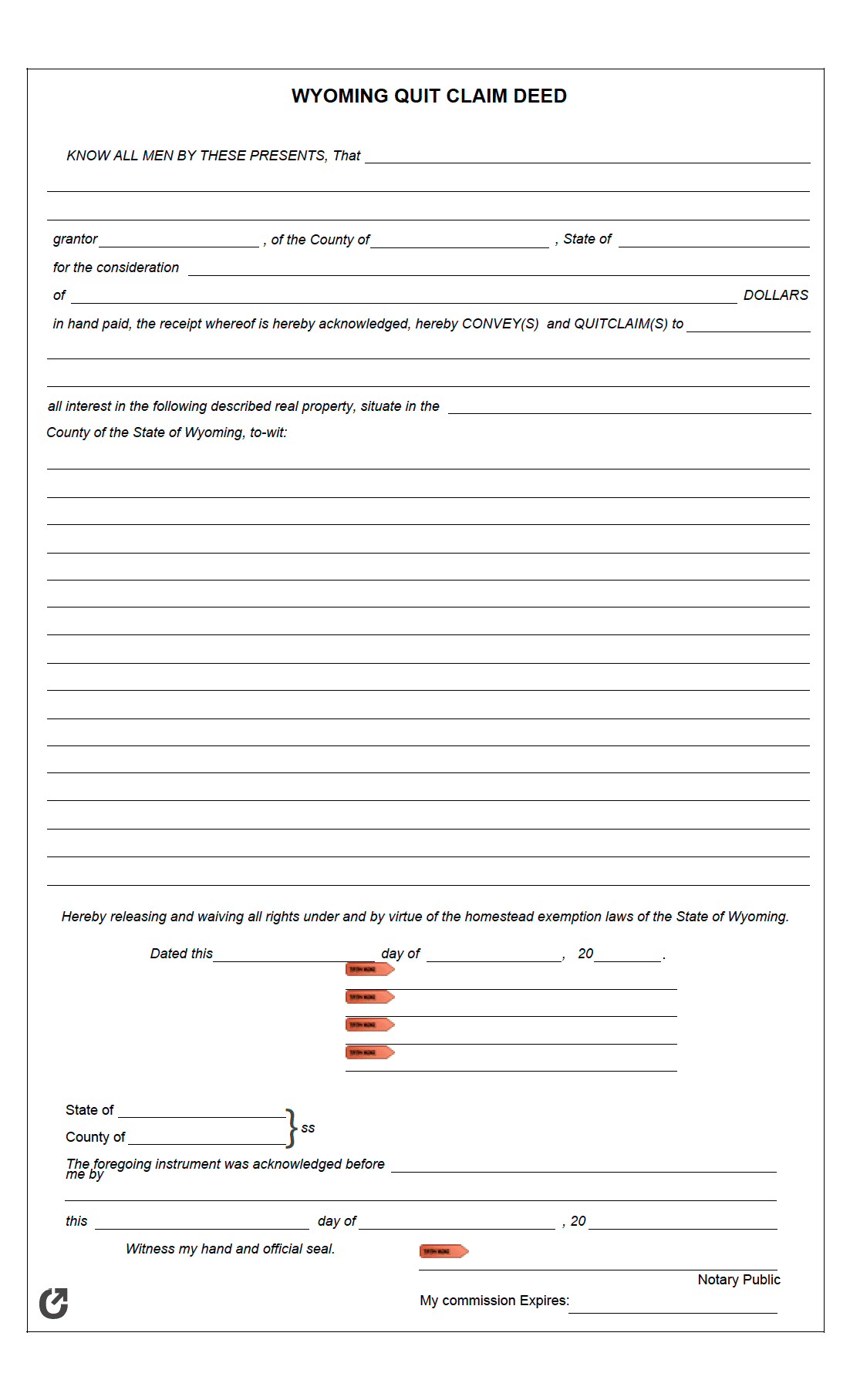Wyoming Quit Claim Deed Form
Download the Wyoming Quit Claim Deed to transfer residential property from one person to another. The deed-type offers no legally-binding promises regarding the title, meaning it could potentially contain liens or other individuals with interest to the property. Although conducting a title search can help to prevent this (and is recommended), the Grantee (person receiving the property) should only agree to the use of a quit claim deed with someone they personally know and trust.
It should be kept in mind that although the Grantor (the party transferring the interest) will not usually face any tangible consequences if the interest they believe they hold does not exist, the Grantee (the party receiving the interest) will. In other words, the Grantee will have no legal avenues to reclaim any money lost in the process.
Download: Adobe PDF, MS Word (.docx)
Laws: § 34-2-104
Requirements
Grantee Address (§ 34-1-119): The Grantee’s address must be stated in the form in order for the deed to be accepted for recording.
Statement by the Grantee (§ 34-1-142): The deed must be accompanied by a Statement of Consideration made by the Grantee under oath. The statement must disclose the following information:
- The name of the Grantor,
- The name of the Grantee,
- The transfer date,
- The sale date,
- The property’s legal description,
- The actual full amount paid or to be paid for the given real estate,
- The terms of sale, and
- An estimate of the value of any nonreal property included in the sale.
Signing (§ 34-26-107): Wyoming law requires the deed to contain the notarized signature of the Grantor.
How to File
Per section 34-1-118, once the form has been completed in full and signed by all parties, it needs to be presented to the office in the county in which the property is located. The filer, who is typically the Grantor, should be prepared to pay a fee for the recording.
Recording type: Wyoming is a race-notice recording state. Because of this, if the deed goes unrecorded, it will be considered void to both creditors and subsequent purchasers of the same property. A creditor or subsequent purchaser can, therefore, claim the property as their own if they then record their respective conveyance with the county clerk. To eliminate this possibility, the deed should be filed as soon as possible.
